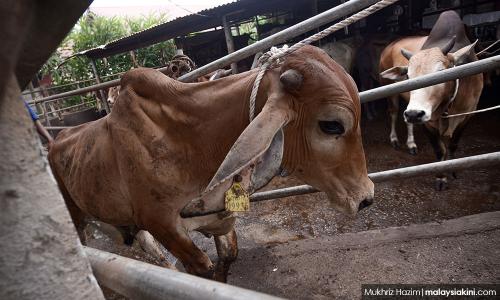COMMENT | Beefatarians not wanted
COMMENT | “If the sound of beef sizzling on the grill brings tears to your eyes, you’re a real beefatarian.” That’s the opening line of a TV ad produced by a European advertising campaign called Proud of European Beef. Just more advertising silliness? No, because the European Union is paying 80 percent of the cost of it.
The United Nations Food and Agriculture Organisation’s 2013 report "Tackling Climate Change Through Livestock" states that beef contributes 41percent of the greenhouse gas (GHG) emissions from the entire livestock sector and also has the highest emissions intensity – that is, the highest GHG emissions per unit of protein – of any animal products.
That is largely because ruminants belch and fart methane, an extremely potent greenhouse gas. As a result, rearing beef cattle brings about, on average, six times the contribution to global warming as non-ruminant animals (for example, pigs) producing the same quantity of protein.
Since that report, the case against beef has strengthened. In 2015, a report from London’s Royal Institute of International Affairs pointed out that worldwide, meat and dairy consumption are rising at a rate that, if projected to 2050, would use 87 percent of the total quantity of emissions that is compatible with the Paris climate agreement’s objective of staying below a 2° Celsius increase in temperature.
A study published in Science in 2018 indicates that producing protein from soybeans in the form of tofu creates only 4 percent of the emissions required to produce the same quantity from beef cattle, while peas and nuts can both produce protein for
RM12.50 / month
- Unlimited access to award-winning journalism
- Comment and share your opinions on all our articles
- Gift interesting stories to your friends
- Tax deductable
